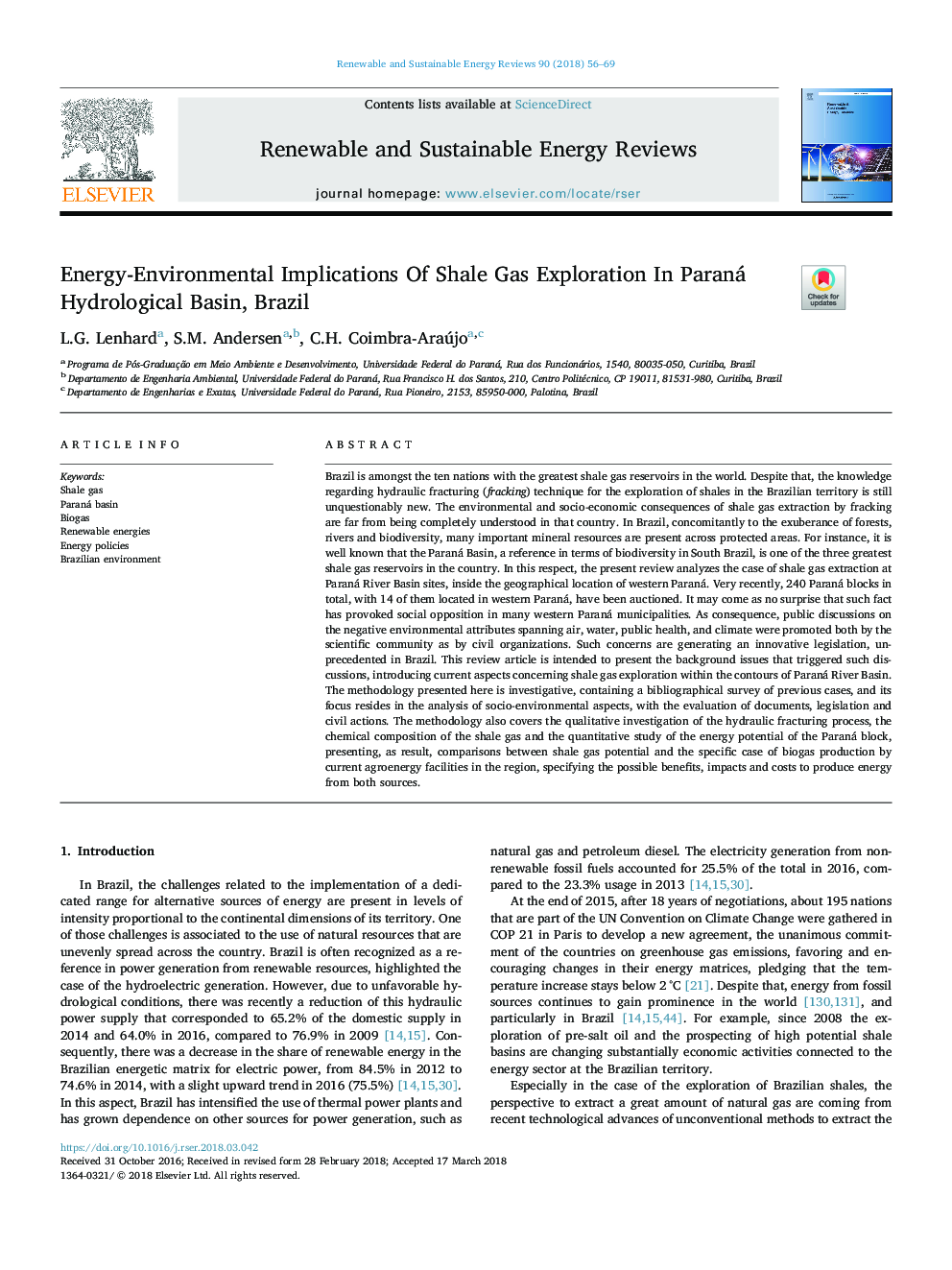| کد مقاله | کد نشریه | سال انتشار | مقاله انگلیسی | نسخه تمام متن |
|---|---|---|---|---|
| 8111149 | 1522294 | 2018 | 14 صفحه PDF | دانلود رایگان |
عنوان انگلیسی مقاله ISI
Energy-Environmental Implications Of Shale Gas Exploration In Paraná Hydrological Basin, Brazil
دانلود مقاله + سفارش ترجمه
دانلود مقاله ISI انگلیسی
رایگان برای ایرانیان
کلمات کلیدی
موضوعات مرتبط
مهندسی و علوم پایه
مهندسی انرژی
انرژی های تجدید پذیر، توسعه پایدار و محیط زیست
پیش نمایش صفحه اول مقاله

چکیده انگلیسی
Brazil is amongst the ten nations with the greatest shale gas reservoirs in the world. Despite that, the knowledge regarding hydraulic fracturing (fracking) technique for the exploration of shales in the Brazilian territory is still unquestionably new. The environmental and socio-economic consequences of shale gas extraction by fracking are far from being completely understood in that country. In Brazil, concomitantly to the exuberance of forests, rivers and biodiversity, many important mineral resources are present across protected areas. For instance, it is well known that the Paraná Basin, a reference in terms of biodiversity in South Brazil, is one of the three greatest shale gas reservoirs in the country. In this respect, the present review analyzes the case of shale gas extraction at Paraná River Basin sites, inside the geographical location of western Paraná. Very recently, 240 Paraná blocks in total, with 14 of them located in western Paraná, have been auctioned. It may come as no surprise that such fact has provoked social opposition in many western Paraná municipalities. As consequence, public discussions on the negative environmental attributes spanning air, water, public health, and climate were promoted both by the scientific community as by civil organizations. Such concerns are generating an innovative legislation, unprecedented in Brazil. This review article is intended to present the background issues that triggered such discussions, introducing current aspects concerning shale gas exploration within the contours of Paraná River Basin. The methodology presented here is investigative, containing a bibliographical survey of previous cases, and its focus resides in the analysis of socio-environmental aspects, with the evaluation of documents, legislation and civil actions. The methodology also covers the qualitative investigation of the hydraulic fracturing process, the chemical composition of the shale gas and the quantitative study of the energy potential of the Paraná block, presenting, as result, comparisons between shale gas potential and the specific case of biogas production by current agroenergy facilities in the region, specifying the possible benefits, impacts and costs to produce energy from both sources.
ناشر
Database: Elsevier - ScienceDirect (ساینس دایرکت)
Journal: Renewable and Sustainable Energy Reviews - Volume 90, July 2018, Pages 56-69
Journal: Renewable and Sustainable Energy Reviews - Volume 90, July 2018, Pages 56-69
نویسندگان
L.G. Lenhard, S.M. Andersen, C.H. Coimbra-Araújo,